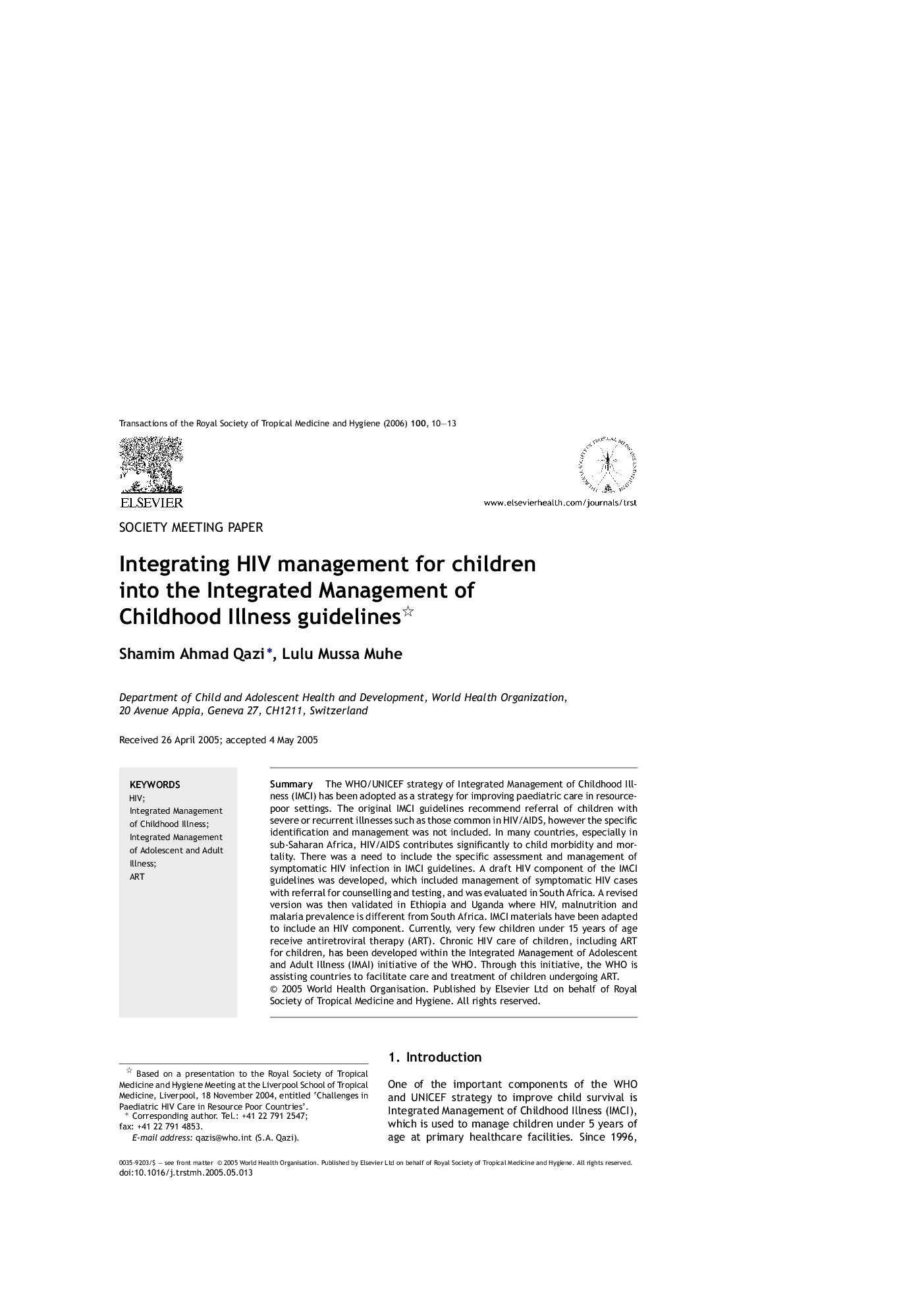| Article ID | Journal | Published Year | Pages | File Type |
|---|---|---|---|---|
| 3421407 | Transactions of the Royal Society of Tropical Medicine and Hygiene | 2006 | 4 Pages |
SummaryThe WHO/UNICEF strategy of Integrated Management of Childhood Illness (IMCI) has been adopted as a strategy for improving paediatric care in resource-poor settings. The original IMCI guidelines recommend referral of children with severe or recurrent illnesses such as those common in HIV/AIDS, however the specific identification and management was not included. In many countries, especially in sub-Saharan Africa, HIV/AIDS contributes significantly to child morbidity and mortality. There was a need to include the specific assessment and management of symptomatic HIV infection in IMCI guidelines. A draft HIV component of the IMCI guidelines was developed, which included management of symptomatic HIV cases with referral for counselling and testing, and was evaluated in South Africa. A revised version was then validated in Ethiopia and Uganda where HIV, malnutrition and malaria prevalence is different from South Africa. IMCI materials have been adapted to include an HIV component. Currently, very few children under 15 years of age receive antiretroviral therapy (ART). Chronic HIV care of children, including ART for children, has been developed within the Integrated Management of Adolescent and Adult Illness (IMAI) initiative of the WHO. Through this initiative, the WHO is assisting countries to facilitate care and treatment of children undergoing ART.
